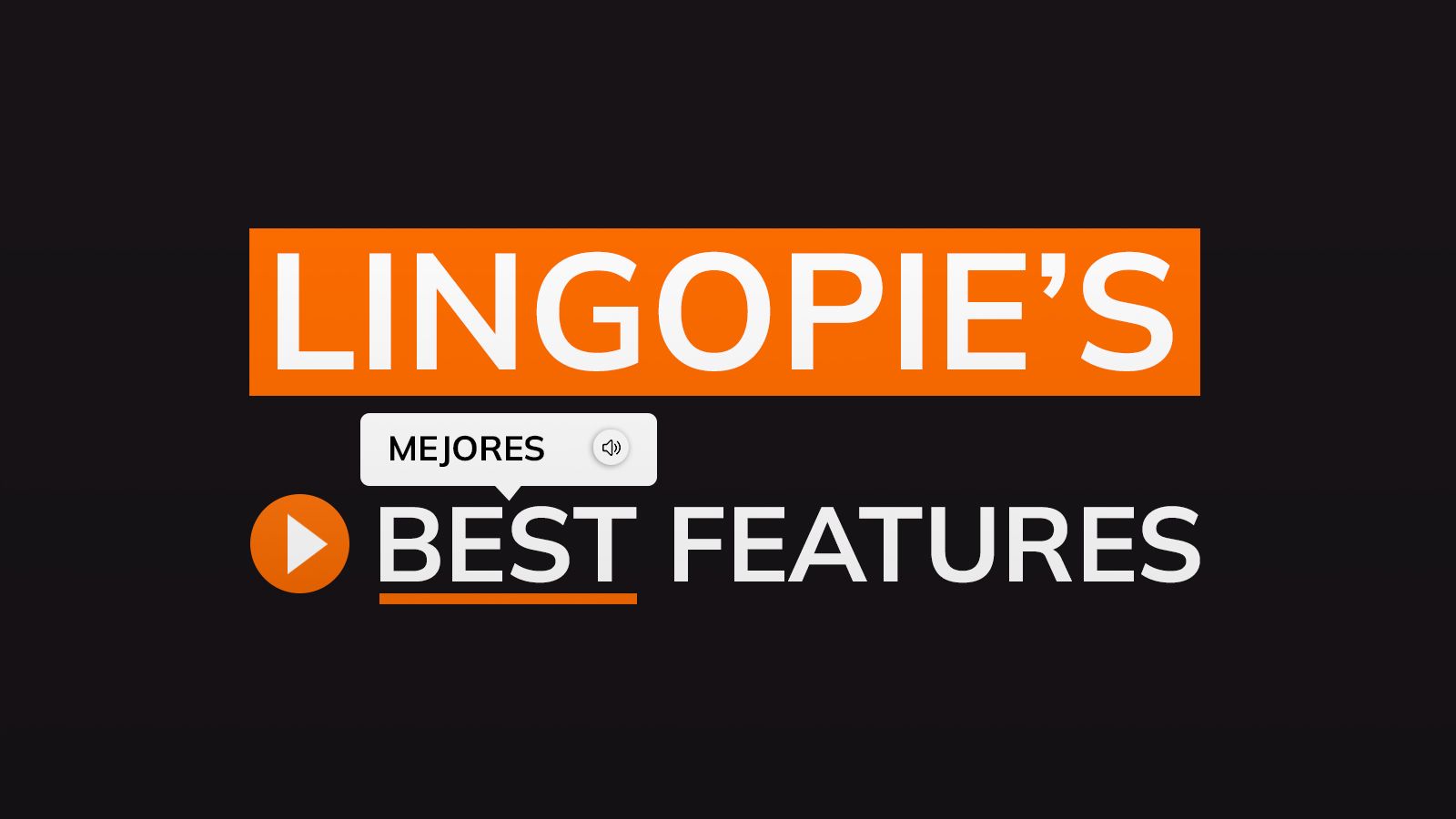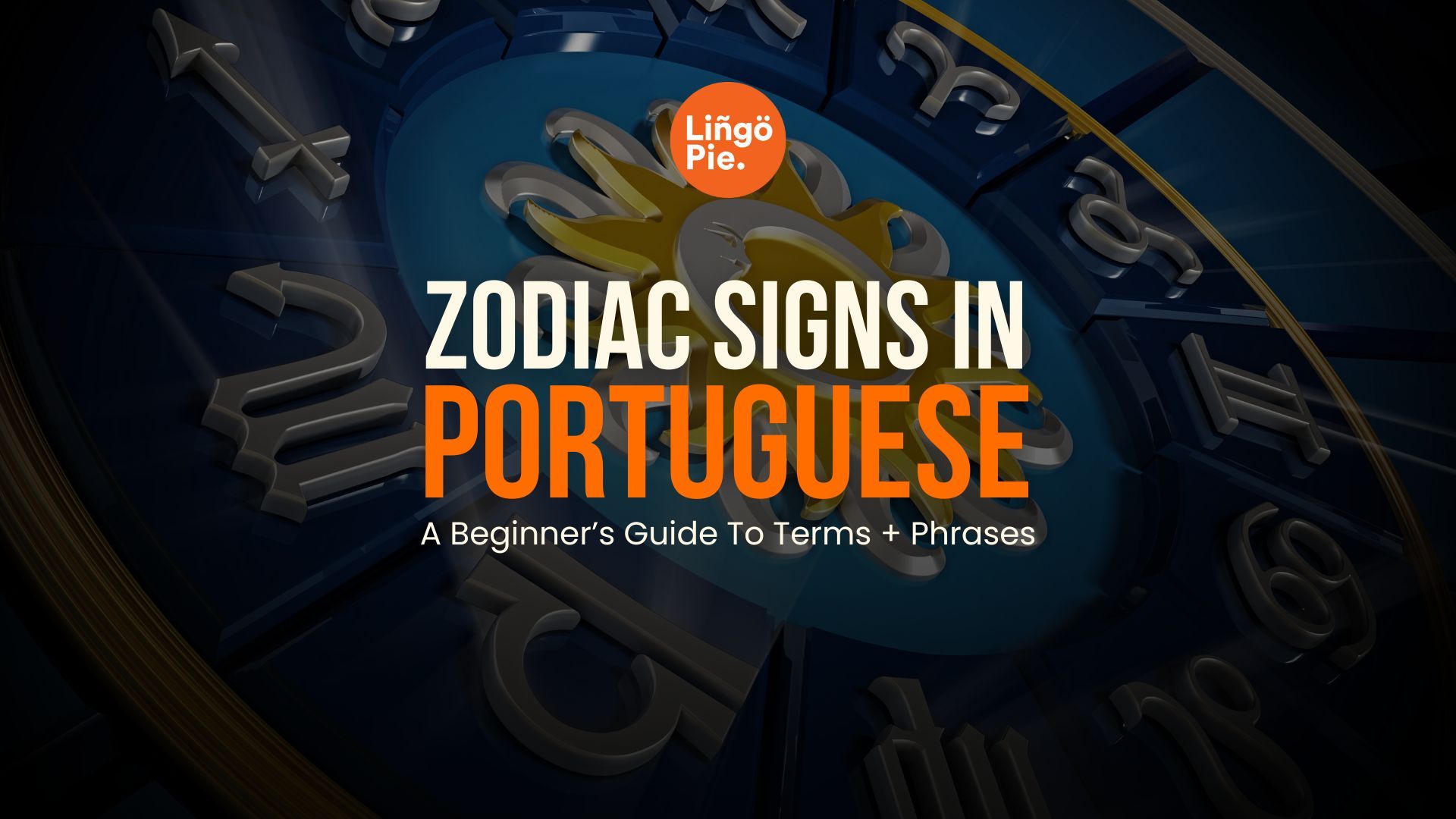Ever wonder how some people learn English so fast? Well, I've got a secret to share. When I was a kid in the Philippines, I learned English by watching TV shows with my dad. And you know what? Those long TV sessions actually worked!
Today, I want to tell you about 12 awesome sci-fi TV shows that can help you learn English too. Don't worry, you won't feel like you're studying. You'll be having too much fun watching cool space adventures! The best part? You can find most of these shows on Lingopie.
Looking for more film and TV recommendations? Read our popular guide below:
- 12 Best Spanish Christmas Movies To Watch This Holiday
- 9 Best French Series to Watch on Lingopie
- 11 Best Free Apps for Streaming Movies
Best Sci-Fi TV Shows to Learn English
As an ESL learner, I know for a fact that Sci-fi shows are perfect for learning English! They use everyday language mixed with fun, futuristic words, helping you pick up real English easily. You'll hear people talk about wild ideas like time travel or alien worlds, which means lots of different words and phrases.
Most sci-fi shows also have clear speech and good subtitles, making them easy to follow. So whether you're new to English or already pretty good, sci-fi can rocket your skills to the next level!

Stranger Things
Stranger Things drops us into 1980s Indiana, where a missing kid, a girl with psychic powers, and a terrifying alternate dimension collide. As the plucky young heroes face otherworldly monsters and shady government agents, the stakes – and the hair – get higher with each season.
What makes this hit TV series great for learning English is that it's packed with cool 80s slang, everyday American phrases, and pop culture zingers. You'll hear how kids joke around, teens flirt, and adults argue – all in natural, conversational English. While some sci-fi terms might be new, most of the language is street-level stuff.

Black Mirror
Black Mirror serves up a chilling dose of tech gone wrong in each stand-alone episode. From social media nightmares to AI mind-benders, it shows how our gadgets and apps could twist the world in dark, unexpected ways. Think of it as a modern Twilight Zone that'll make you think twice about your next software update.
For English learners, Black Mirror is absolutely a must-watch. Why? Well, it showcases various accents, from posh British to various American dialects - all in contemporary, natural speech! The show also tackles complex themes, so you'll pick up both American and British slang vocabulary about technology, ethics, and society.
Stargate Universe
Stargate Universe follows a stranded crew on an ancient ship far from Earth. They battle survival, alien threats, and each other while uncovering the ship's secrets. It's Stargate with a darker, more realistic twist.
It's perfect for English learners as you'll hear military talk, science terms, and everyday chat in various accents. The mix of action and drama offers diverse language contexts.

The Witcher
The Witcher plunges us into a gritty fantasy world where Geralt, a monster-hunter with superhuman abilities, battles beasts, navigate political intrigue, and grapples with his destiny. Toss in a powerful sorceress and a princess with a mysterious gift, and you've got a recipe for epic adventures across a war-torn continent.
Personally, I think that The Witcher is brimming with colorful medieval-style dialogue, creative insults, and fantastical terminology. You'll hear a mix of accents, from Henry Cavill's gravelly Geralt to the varied speech patterns of elves, mages, and common folk.

Love Deaths + Robots
Love, Death + Robots dishes out a wild cocktail of animated sci-fi shorts. Each episode is a standalone story, ranging from dark comedy to mind-bending horror. You'll see sentient yogurt take over the world, robots outliving humanity, and farmers piloting mech suits.
If you do decide to tune into this, you'll naturally pick up terminologies and phrases from military scenes to futuristic tidbits. Do note though that the show's adult themes and occasional complex vocabulary make it best suited for upper-intermediate to advanced learners.
Lost
Lost crashes a plane full of strangers onto a mysterious island. As they struggle to survive, they uncover the island's bizarre secrets, face smoke monsters, and grapple with their own dark pasts. It's a thrilling blend of survival drama, sci-fi mystery, and character study.
For English learners, Lost is a jackpot. You'll hear a mix of accents from its diverse cast, from American to British to Korean. The show balances everyday conversation with intense arguments and philosophical discussions. Oh, and the constant flashbacks there will offer glimpses into different cultures and ways of speaking.

The OA
This TV series follows Prairie, a once-blind woman who returns after a seven-year disappearance with her sight restored and a wild tale to tell. Part sci-fi, part mystery, part interpretive dance - yes, really - this show bends reality and challenges viewers at every turn.
English learners will find The OA a unique challenge. The dialogue shifts between everyday conversations and profound, sometimes poetic discussions about life, death, and the nature of reality. You'll encounter a mix of American accents, from Midwestern twangs to urban dialects.

Deadboy Detectives
Deadboy Detectives spins off from Neil Gaiman's Sandman universe, following two ghost detectives who opted to skip the afterlife and solve supernatural crimes instead. Edwin Paine and Charles Rowland, eternally stuck in their teen years, team up with a very alive psychic named Crystal. Together, they tackle bizarre cases that blur the lines between the living and the dead, all while navigating the awkwardness of being forever young.
This show is a treat for English learners looking to dive into more niche vocabulary. You'll pick up plenty of British phrases (courtesy of our ghostly leads) mixed with modern American expressions. The supernatural theme introduces fun, spooky terms, while the detective angle brings in crime-solving lingo.
The X-Files
The X-Files follows FBI agents Mulder and Scully as they investigate unexplained phenomena. From aliens to monsters, government conspiracies to paranormal events, they pursue the truth that's out there. It's a perfect mix of sci-fi, horror, and detective drama.
Here, you can expect to hear formal FBI speak alongside scientific jargon and everyday conversation. For me, I think that the "monster of the week" format introduces varied vocabulary in each episode so it's great for all levels of English learners.

Russian Doll
Russian Doll throws you into a time-loop comedy with a dark twist. Nadia, a sharp-tongued New Yorker, finds herself reliving her 36th birthday party over and over, dying in increasingly bizarre ways each time. As she tries to break the cycle, she discovers she's not the only one stuck in this weird repetition.
Here, you'll hear rapid-fire dialogue packed with sarcasm, witty comebacks, and colorful expressions that don't always make it into textbooks. The show's use of Jewish and Russian-American cultural references adds depth to the language-learning experience.
While the fast pace and heavy use of slang might challenge beginners, intermediate to advanced learners will love decoding Nadia's quips and the show's clever wordplay.

Atropa
Atropa throws us into deep space with a gritty, noir-tinged mystery. An Off-World cop, haunted by his past, finds himself face-to-face with it when he boards the enigmatic spaceship Atropa. As he investigates a missing person case, he's drawn into a dark web of secrets that challenges everything he thought he knew.
The show's moody narration is great for practicing comprehension of different tones and accents in English. While the sci-fi elements introduce some specialized vocab, much of the language is grounded in gritty, real-world expressions. And trust me, beginners and intermediate learners will have a fun time watching each episode of this hit show!
Futurama
Futurama rockets us to the year 3000, where a 20th-century slacker finds himself surrounded by cyclops, lobster aliens, and snarky robots. This animated sci-fi comedy pokes fun at everything from technology to politics, wrapping sharp satire in layers of silly humor.
The characters here constantly use puns, pop culture references, and witty one-liners that reflect current humor. You'll hear how English can be playfully twisted for comedic effect. While some jokes might be tricky, the visual gags help context.
Tips for Learning English with Sci-Fi TV Shows
The key to learning with sci-fi is to make it a habit. Watch regularly, even if it's just one episode a day. Don't worry if you don't understand everything at first - the more you watch, the easier it gets. Remember, even native English speakers sometimes get confused by sci-fi jargon!
Here are three simple techniques to supercharge your learning:
- Use English subtitles to match what you hear with what you read.
- Pause and repeat cool phrases out loud to practice pronunciation.
- Keep a list of new words and phrases you learn from each episode.
Lingopie makes all of this easier. It offers a huge selection of sci-fi shows with interactive subtitles, letting you click on words to see definitions and save them for later. You can easily replay tricky scenes and track your progress too!
Curious about Lingopie's methodology and language-learning features? Read our guide below 👇

Ready To Watch & Learn English?
And there we have my top recommendations for sci-fi TV shows to learn English. These shows offer a perfect blend of entertainment and language learning, from mind-bending mysteries to futuristic adventures.
Ready to start your language learning journey through the stars? Give Lingopie a try with their 7-day free trial. It's packed with these sci-fi gems and many more, all designed to make learning English as exciting as a space odyssey. Click below to unlock your FREE trial!









![20+ Gen Alpha Slang And What They Mean [Guide]](/blog/content/images/size/w300/2025/06/Gen-Alpha-Slang.jpg)
